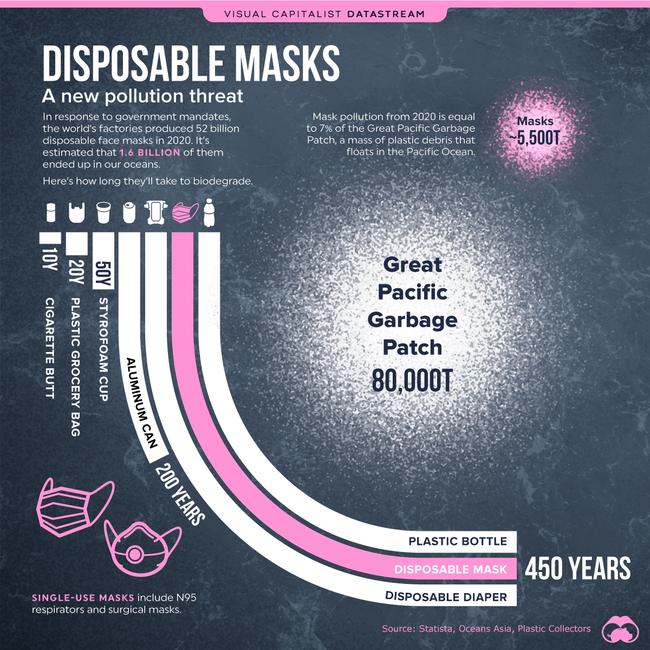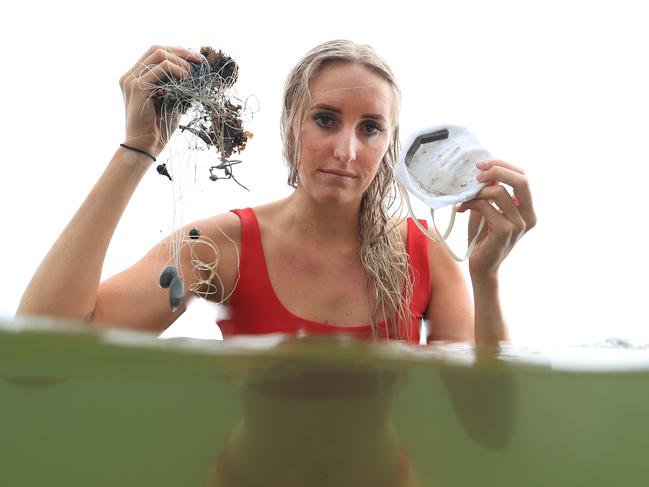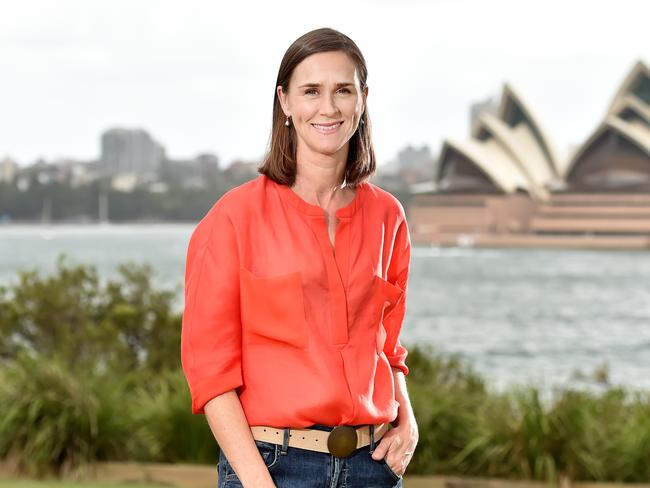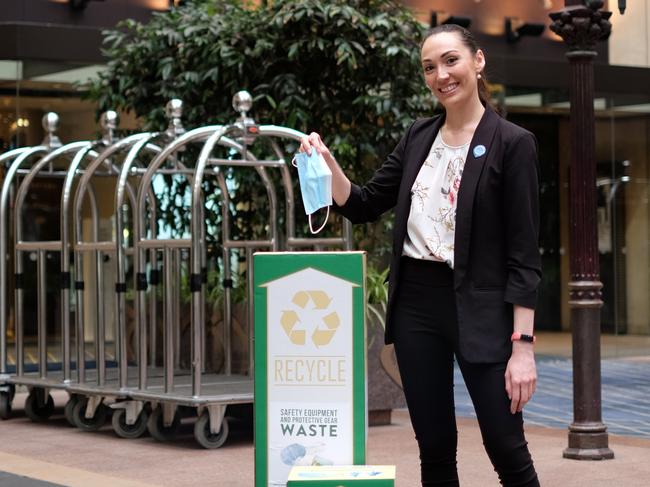Shocking reality of Covid pollution as discarded masks end up on our oceans
A jaw dropping new graphic reveals the global scale of one of the effects of Covid — and there is a way we can fix it.
Coronavirus
Don't miss out on the headlines from Coronavirus. Followed categories will be added to My News.
Environmental groups are pleading for Australians to recycle their disposable face masks or use the washable cloth variety, as more and more of them end up in waterways.
A new Spanish study estimated 1.6 billion disposable masks have found their way into the world’s oceans since the start of the Covid-19 pandemic.
While this figure equates to just 3 per cent of the 52 billion disposable face masks produced in 2020, it also adds up to nearly 5000 tonnes of plastic pollution.

Locally there have been no studies of the number of masks thrown away, but Clean Up Australia spokesperson Pip Kiernan said the organisation’s volunteers were seeing a lot more of them.
“You just have to walk down the street to see them,” she said. “Everything we drop on the ground is likely to end up in a waterway.”
The plastic inside polypropylene masks “takes 450 years to break down, and even then the plastic stays around as microplastics,” Ms Kiernan said.
Clean Up Australia is encouraging people to invest in reusable masks, and recycle the disposable ones via TerraCycle collection boxes.
Masks cannot be recycled as part of normal council collections.

The RSPCA also advises users to snip the elastic when they’ve finished with their mask, as the straps can cause problems for wildlife if the item ends up in the environment.
TerraCycle’s Head of Global Content Jen Walker said the company had seen a 200 per cent increase in sales of their PPE collection boxes since 2020, and each box when full could hold about 1200 disposable masks.
Ms Walker said the collection boxes had been bought by a range of organisations, including hotels, banks and local councils, but the company was keen to seem them rolled out more widely.
“We’d love to see the supermarkets get on board,” she said. “Imagine if Coles and Woolies had a box outside every store.”

Once a collection box is full they are quarantined for at least six weeks, then the contents are shredded. A magnet is deployed to extract the tiny metallic filaments that mould the mask over the bridge of the nose, while the remaining plastics are converted into pellets, which are used in shipping and for making other industrial plastics.
The waste can be warehoused for a period of time prior to the process, Ms Walker said, as the recycling was expensive and best done on a large scale.
Luxury Melbourne hotel the Sofitel is one of the Australian businesses to make use of the TerraCycle boxes, the initiative part of its internationally-certified commitment to sustainability,

The hotel’s environment manager Johanna Bouniol said employees were changing their masks every four hours, and staff alone were going through 1000 masks per week.
“We are always looking at new ways to reduce waste going into landfill, and we wanted to find a solution to get rid of this waste,” she said.
While the organisation explored cloth masks for staff at the start of the pandemic, the advice from health authorities was disposable surgical masks for customer-facing staff were more hygienic, Ms Bouniol said.
The hotel had already filled “somewhere between 15 and 20” of the TerraCycle boxes since the start of the outbreak, she said.
Originally published as Shocking reality of Covid pollution as discarded masks end up on our oceans





